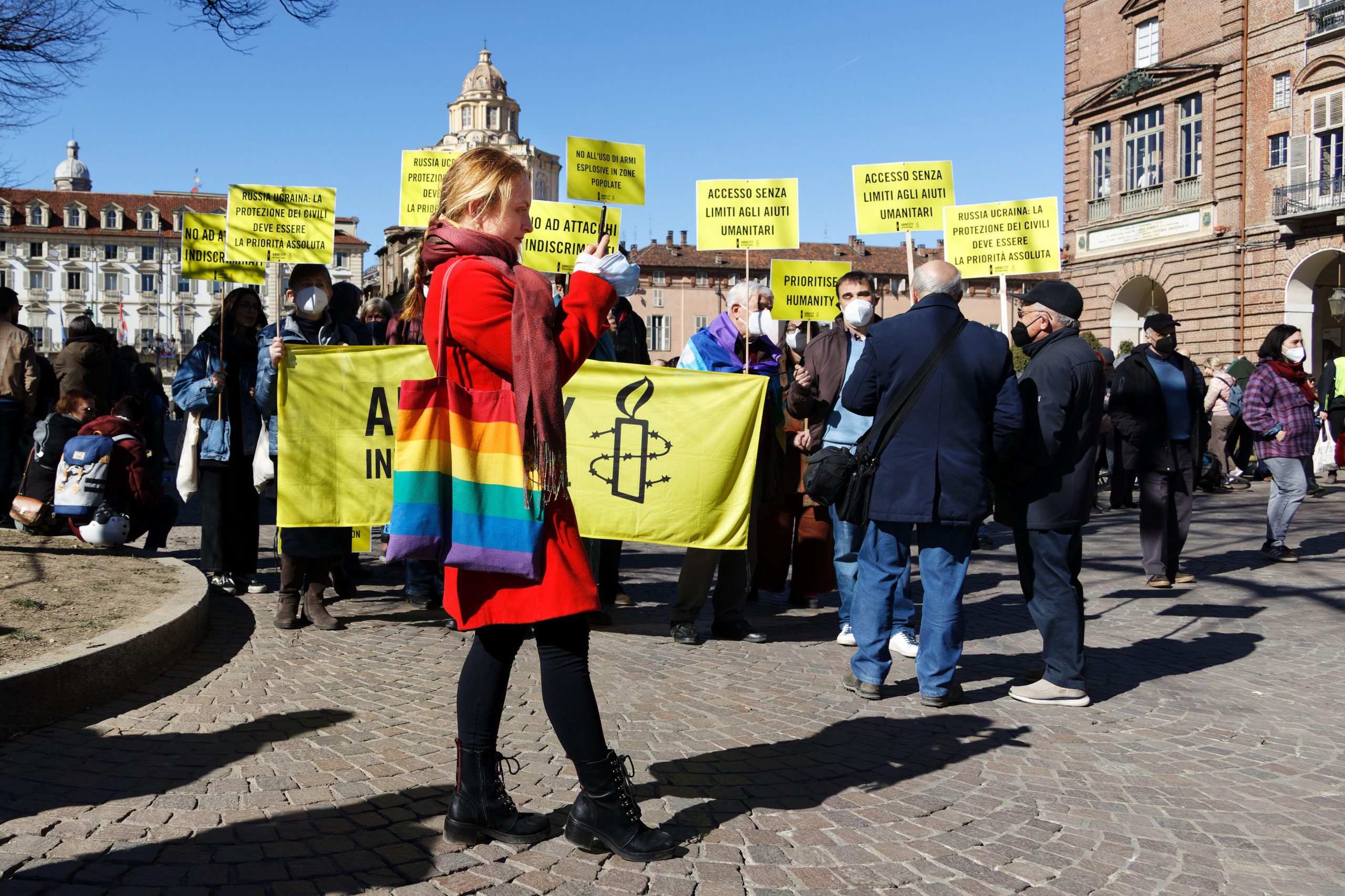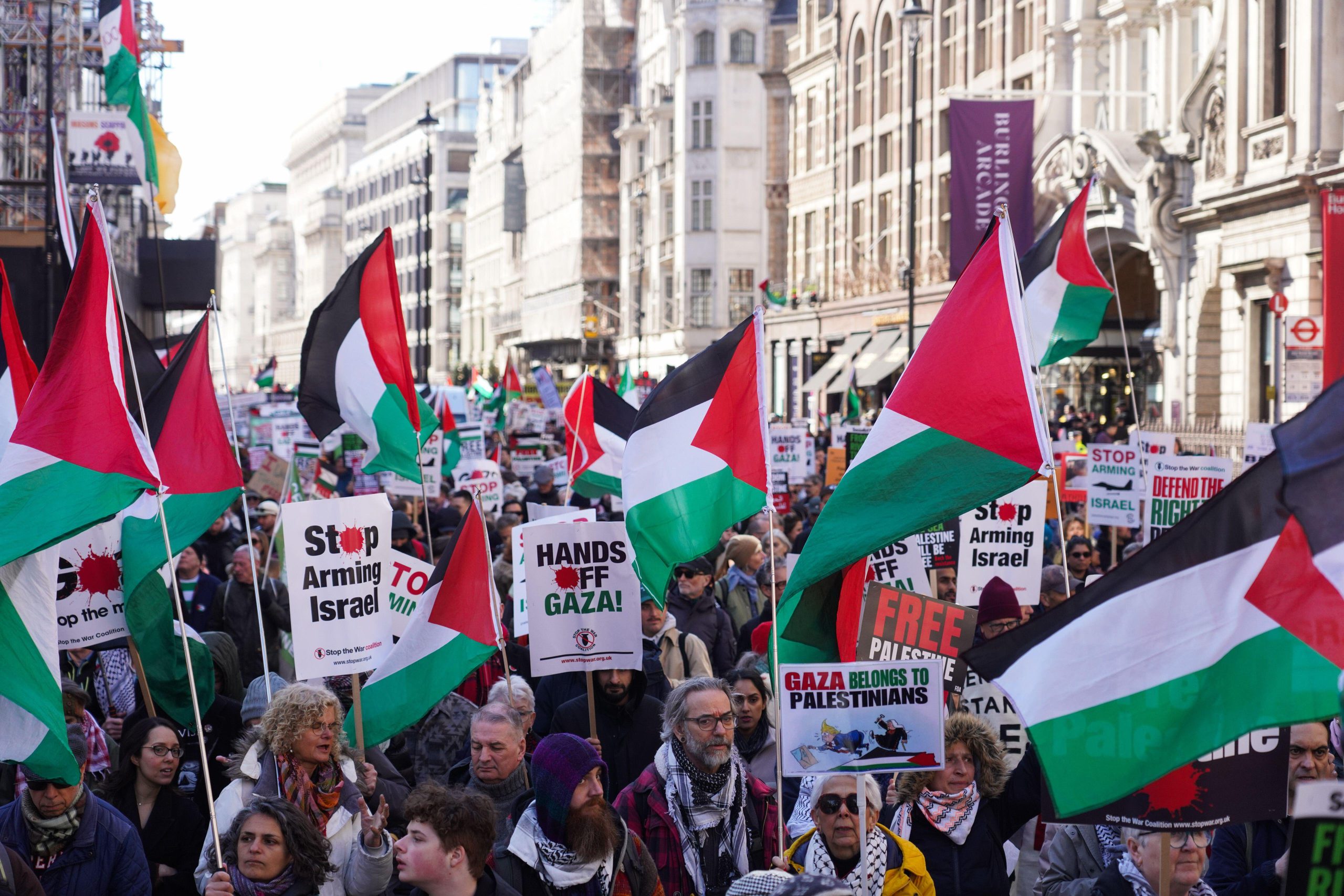On 25 December 2012, Gaza’s Hamas government announced a ban on Palestinian journalists working with Israeli media.
This decision affected just three journalists in Gaza, one of whom is 25-year-old Abeer Ayyoub. Abeer went from working as a fixer for visiting foreign journalists to writing stories herself, and in the process landing a job with Israeli newspaper Ha’aretz. Starting at the beginning of the last attack on Gaza in November 2012, she quickly made a name for herself by breaking stories that most journalists operating in the Strip had never realised existed.
I spoke to Abeer about what the ban means for her work, and for the state of press freedom in Gaza today
Ruth Michaelson: When we spoke the other day, you described working for Ha’aretz as “your dream”. Why did you want to work with Israeli media?
Abeer Ayyoub: Because I wanted to be the Palestinian voice in Israeli media, to send a message and cover these events from Palestinian eyes — I didn’t want Israeli journalists to be talking about something they’ve never seen [Israeli citizens are banned from entering Gaza]. So I wanted to be the one talking to Israelis, to communicate exactly what is going on here. Most Israelis are misled about what life is like here — they think that we’re all terrorists, which is not the case: Gaza has many civilians who have nothing to do with resistance. Sure, they have their own affiliations, but people have lives here, and they want to live in peace.
RM: Did you feel under threat while you were working for Ha’aretz?
AA: No, never. People showed understanding about my reasons for doing this; my family, my colleagues, even the Gaza authorities were supportive when I asked them before starting at Ha’aretz. They told me that they were in favour of having Palestinians writing for the Israeli media. The criticisms I heard or felt came from people who aren’t involved with the media, so I didn’t take them seriously.
RM: Why did you decide to talk to the Hamas government before going to work for Israeli media?
AA: I hate to do things in secret: I want to do everything under the light. I wasn’t asking for permission, I was just informing them of what was going on. They told me “go ahead, we never banned anyone from working with Israeli media, and it’s the same for you.” It was the head of media relations in Gaza who told me that, the same person who later told me I was banned.
RM: What reason did Hamas give for the ban?
AA: There were several different reasons given — that Israeli media is hostile to us, and that Israel doesn’t allow Palestinians to go inside and cover what’s going on, so we’re not going to allow them to do the same here. But the third and most depressing reason is that they expressed concern that journalists who work with Israeli media will ultimately become spies.
RM: Why do you think they changed their minds like this?
AA: It’s been very difficult to figure this out, as the reasons kept changing — especially as they banned their officials from talking with Israeli media in the same ruling. They certainly have their reasons, but it’s none of the reasons they’ve made public.
RM: So how were you informed about the ban?
AA: Just like everyone around me, I read it in the papers. No one called me or contacted me to let me know. So after I read about it, I went to the media office and asked them if they were serious about this. They told me that they were, and that I had no other choice but to submit to this decision. Initially I thought that I wouldn’t submit to this, but then I reasoned that I have no wish to create extra problems for myself.
RM: What were the risks involved if you hadn’t complied?
AA: The statement said that anyone working for Israeli media will be “punished”: I didn’t want punishment or to be arrested, as I have work that I still want to do here nonetheless. The thing is that a lot of normal people on the ground are against working with Israeli media, so I didn’t think that I would find a lot of support. I decided to stop for a while until things change, and I’m sure that they will change, because Hamas tend to take decisions like this and then repeal them at a later date.
RM: What do you think is the reason behind such a sweeping ruling that only affects three people?
AA: This is the thing — there have been allegations that there are people who work for Israeli media in secret, with no bylines. But again, this was a ruling also designed to affect Hamas officials, and I believe this was aimed primarily at them. Once again, the reason for this will be anything except the reasons they gave.
RM: The timing of the decision seems political, in that it came after the ceasefire with Israel. Do you think that this has anything to do with the ruling?
AA: This was one of Hamas’s claims, that Israel had targeted journalists during the war, and so if Israel doesn’t respect our journalists then we don’t want them to work with Israel. How these two things are related is something that I don’t personally understand.
RM: How comfortable do you feel working as a journalist in Gaza now, following this ban?
AA: I feel comfortable at the moment, my relationship with the government is good. I work a lot with other forms of international media, and things seem to be okay. Sometimes [the Hamas government] remind me, with provocations or questions about whether I’m still working with Ha’aretz, that they are still focused on this, even if they say it as a joke. But this to me is nothing too serious.
RM: Many elements of both Israeli and Palestinian life are hidden from view given the restrictions on freedom of movement, do you feel like the decision contributes to this?
AA: Exactly. Now there is a real problem — things are disjointed. I can’t express myself within Israeli media: this is permitting any potential media bias, or at the very least reports lacking in sufficient information.
RM: What will be missing from Israeli media discourse as a result of this decision?
AA: Basically I think the gap between civilians on both sides will be widened. We only know about their government, and they only know about ours. The things that I wanted to write about were what normal, everyday people are doing — people like me or my family and friends: we hate the on-going conflict. We believe in resistance, but things are not like the normal depiction of Palestinians in the media, which is likely to portray us as inherently violent.
RM: What would you say is the state of press freedom in Gaza?
AA: I would say it’s changing from time to time, sometimes we have enough space to write, but other times we are denied our simplest rights. It’s the case wherever; governments always try to control journalism when it comes to writing about them.
Ruth Michaelson is a freelance journalist. She tweets at @_Ms_R





